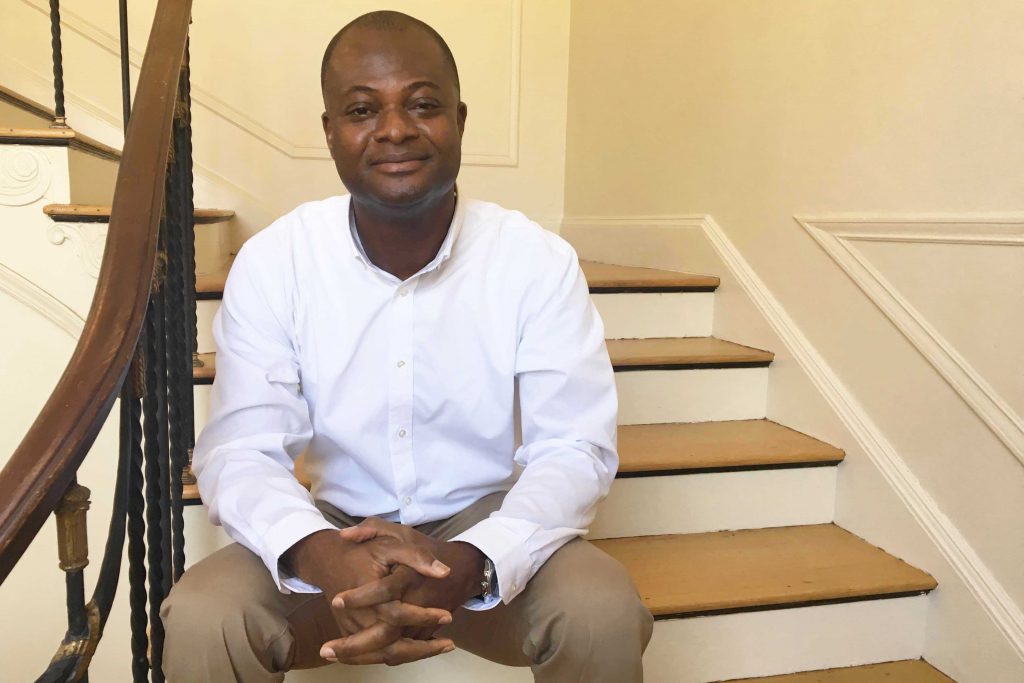Pay-to-play politics has trapped Ghana in a never-ending cycle of growth without development, according to Ghana’s former top presidential aide. Speaking at Boston College Law School on March 27, Professor Raymond Akongburo Atuguba said the nation’s broken campaign finance system is forcing elected officials to spend most of their time in office repaying their debts to donors and building re-election “war chests” rather than facilitating economic and societal development.
“You run an election, and you restart from cycle one. The only thing you can do is to make a few institutional changes, a few operational changes, and you’re finished. Nothing fundamental. And the situation goes on,” said Atuguba, an associate professor at the University of Ghana School of Law who served as executive secretary to the Republic of Ghana’s former president John Dramani Mahama.
Corruption and other pervasive effects of money in politics may not seem like a problem unique to Ghana. But unlike in developed countries like the US, he said, Ghana lacks the basic institutional infrastructure to afford this “luxury.”
For example, Atuguba said, people in Ghana often hesitate to help accident victims because the government has failed to implement much-needed reforms to its broken health care system—a system that holds good Samaritans as guarantors liable for the victim’s medical costs.
Ghanaians are people of remarkable resilience and talent, he added, but the nation cannot harness the full potential of its human resources without addressing the underlying problem of power being used as a currency, and vice versa.
A member of the Ghana Bar, Atuguba received his bachelor’s degree in law from the University of Ghana, and both his master of laws and doctor of juridical sciences degrees from Harvard Law School. He has written extensively on a variety of issues, including public policy, constitutionalism, human rights, law and development, and institutional renewal in Africa.
His lecture at BC Law, “Human Rights in Aid Development in Jinxed Africa,” was hosted by the Clough Center for the Study of Constitutional Democracy.


